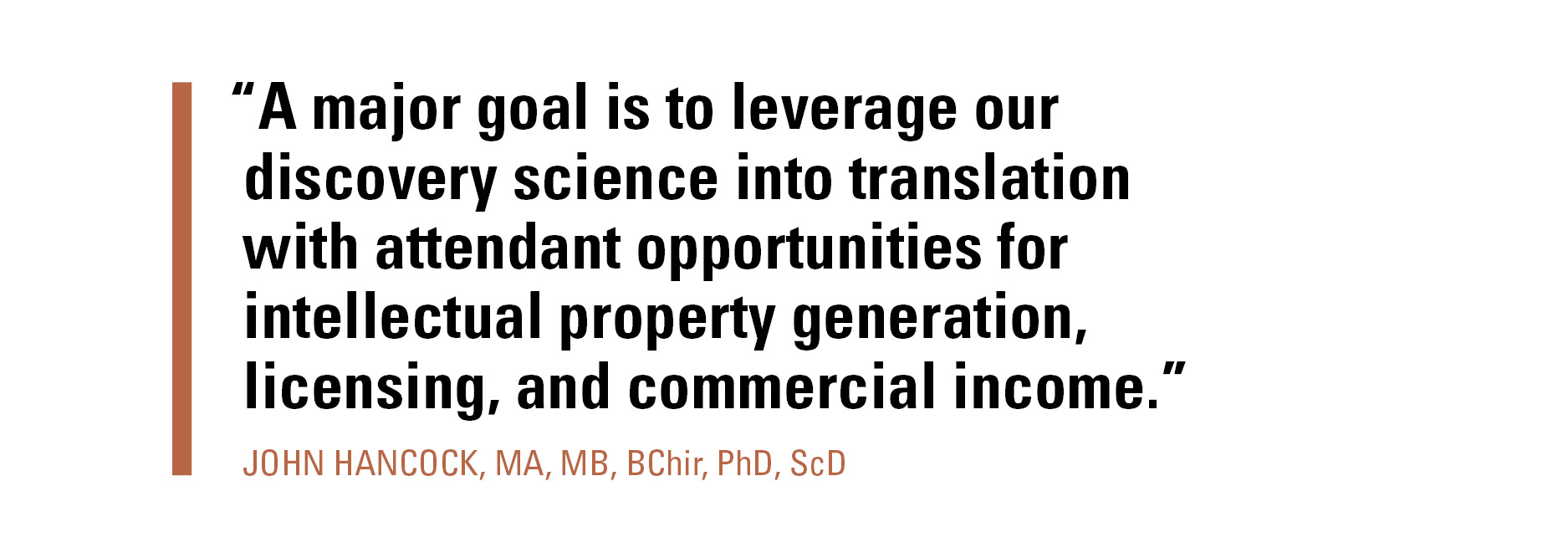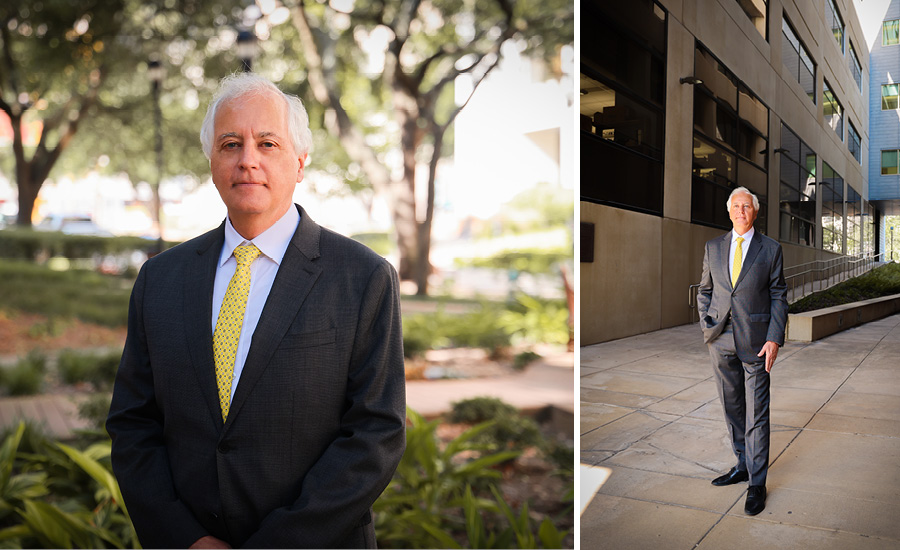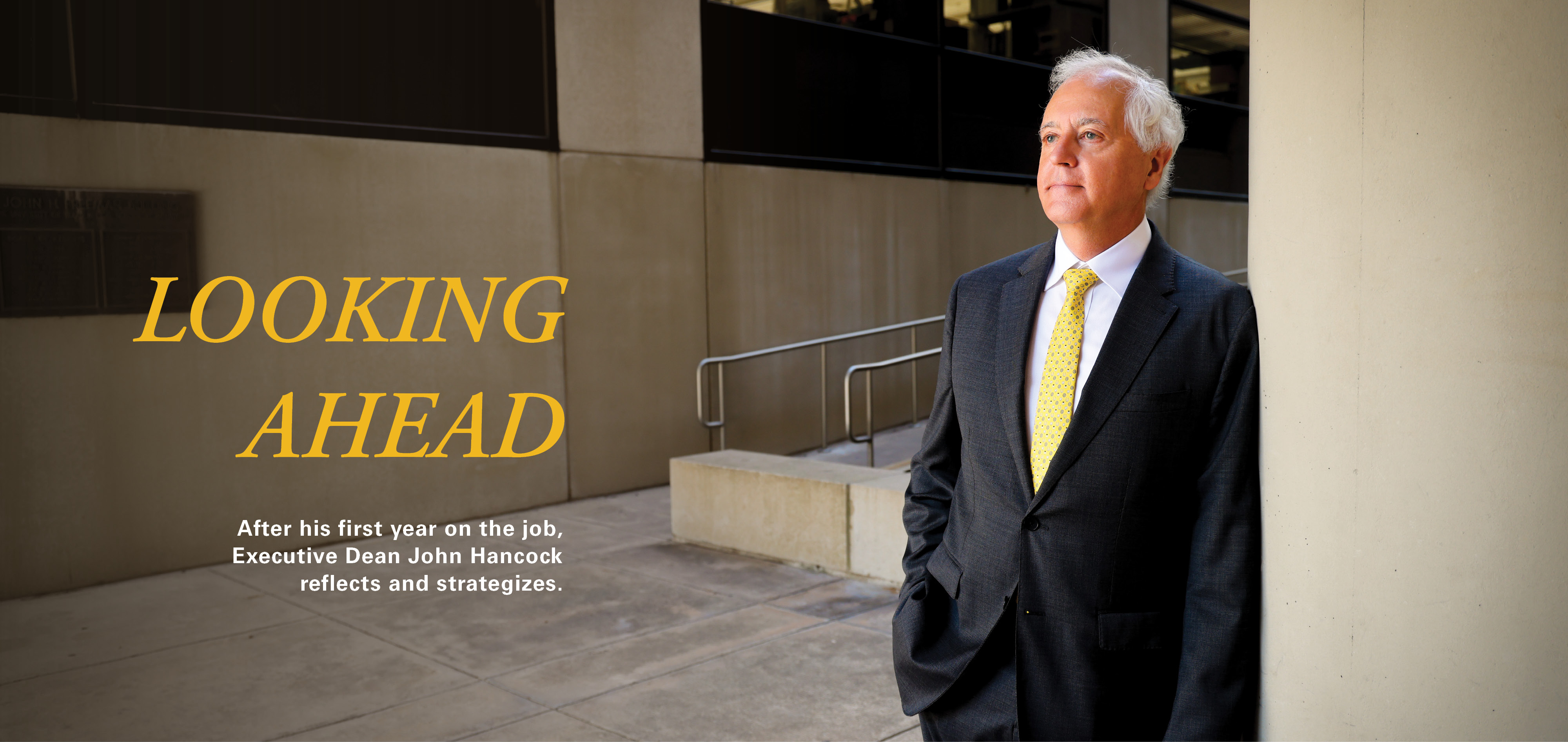John Hancock, MA, MB, BChir, PhD, ScD, took the helm as executive dean of McGovern Medical School and H. Wayne Hightower Distinguished Professor in the Medical Sciences Sept. 1, 2022. Following his first year on the job, he reflects on the state of McGovern Medical School and its future.
What have you been most proud of during this first year?
This has been an amazing year for recruiting outstanding new faculty into McGovern Medical School. We have welcomed world-class scientists into the basic science departments, to our Brown Foundation Institute of Molecular Medicine, as well as into our clinical departments. In the near future, I look forward to recruiting vice chairs for research for the departments of Pediatrics and Ophthalmology and Visual Science. It has been an exceptionally busy year for the Louis A. Faillace, MD, Department of Psychiatry and Behavioral Sciences as we seek new faculty to grow the department as part of the new UTHealth Houston School of Behavioral Health Sciences. We have secured some remarkably talented faculty in this discipline who bring substantial research grant portfolios and new clinical skillsets.
Working with all the Medical School departments has given me a newfound respect for the breadth of our school’s expertise and resources. I rely heavily upon our 23 department chairs to drive their respective clinical and research enterprises, and in this context, we are pleased to have appointed two new chairs this year– Michael Lorenz, PhD, Department of Microbiology and Molecular Genetics, and Jacques Morcos, MD, Vivian L. Smith Department of Neurosurgery. Similarly, Dr. LaTanya Love, dean of education, and Dr. Richard Andrassy, senior vice president of clinical and faculty affairs, play critical roles in keeping the Medical School operating as smoothly and efficiently as it does. On the education side, our students are second to none. Welcoming the Class of 2026 was a highlight, not least because their journey through their medical school education will parallel mine in the Dean’s Office.
What has surprised you the most?
I have been at UTHealth quite some time as a chair of basic science department and IMM director, but during my time in the Dean’s Office, I have learned to appreciate the additional challenges facing our clinical chairs. I am especially impressed by their capacity to carry a busy clinical load as well as running their departments.
What are the most important factors for a successful medical school?
Our success is rooted in our people. We require an engaged and productive faculty that excels in clinical practice, education, and research. We also need strong and supportive clinical partners, which we have in Harris Health and Memorial Hermann Health System, the latter with whom we have signed an exciting new long-term affiliation agreement this year. A key role of this office is to engender a supportive environment where our tripartite missions can flourish, ultimately providing an outstanding educational experience for our students and residents, which is after all the primary reason for our existence.

What are the biggest opportunities for McGovern Medical School?
Further growth of our research mission is a top priority. We also need to expand our clinical trials and provide resources to enhance training opportunities for physician-scientists. A major goal is to leverage our discovery science into translation with attendant opportunities for intellectual property generation, licensing, and commercial income. The new TMC3 collaborative building and vision will certainly help us here. Also, in context of our clinical partners, there will be significant opportunities for new clinical ventures and collaborations.
What is the Medical School’s biggest challenge?
An ongoing challenge to our vision for further growth of our research portfolio is limited laboratory space available within the Medical School Building and our other research facilities at IMM and on the south and mid campuses. Although we gained some new space in the TMC3 collaborative building, we still need to plan a major expansion of our research footprint sooner rather than later.

